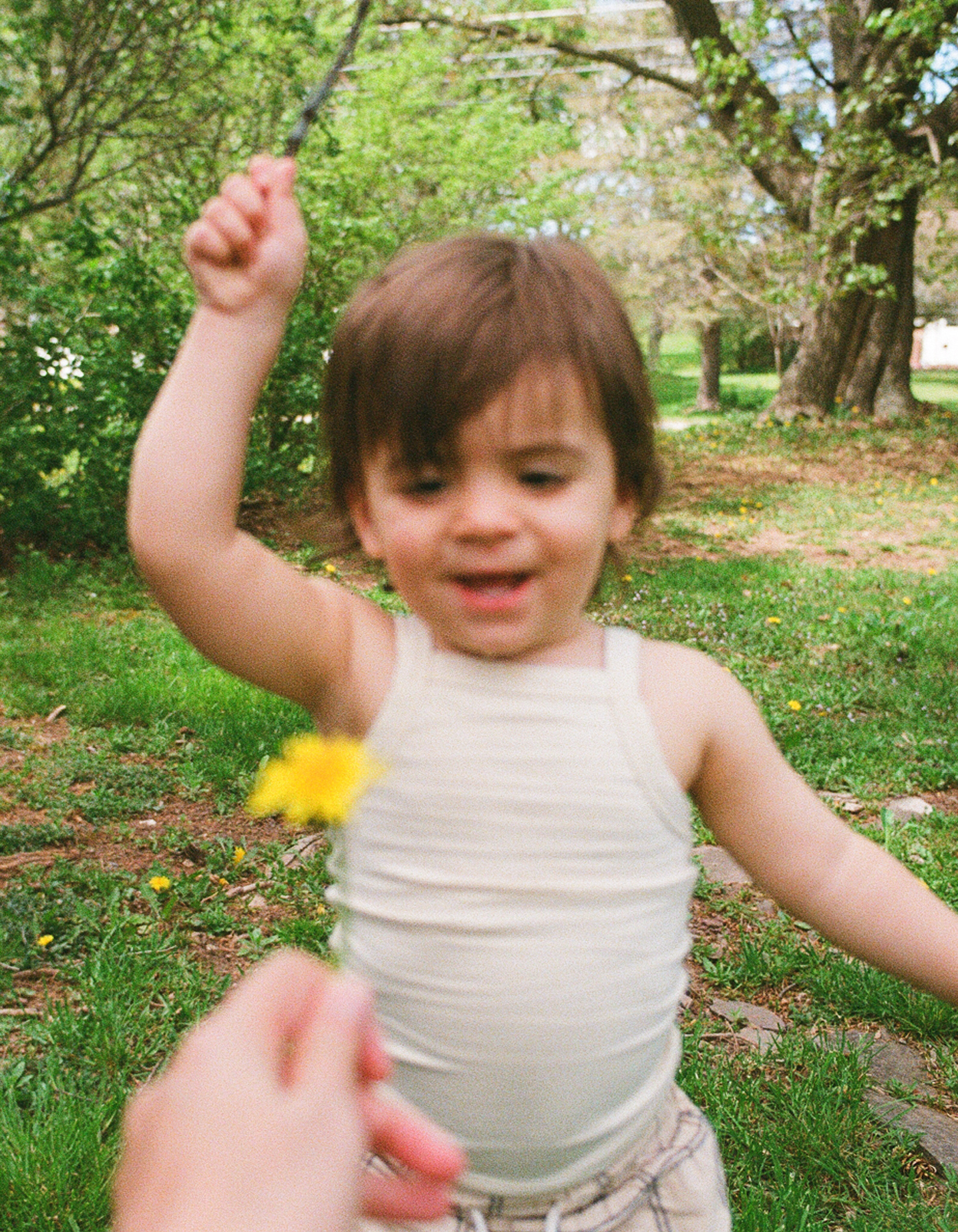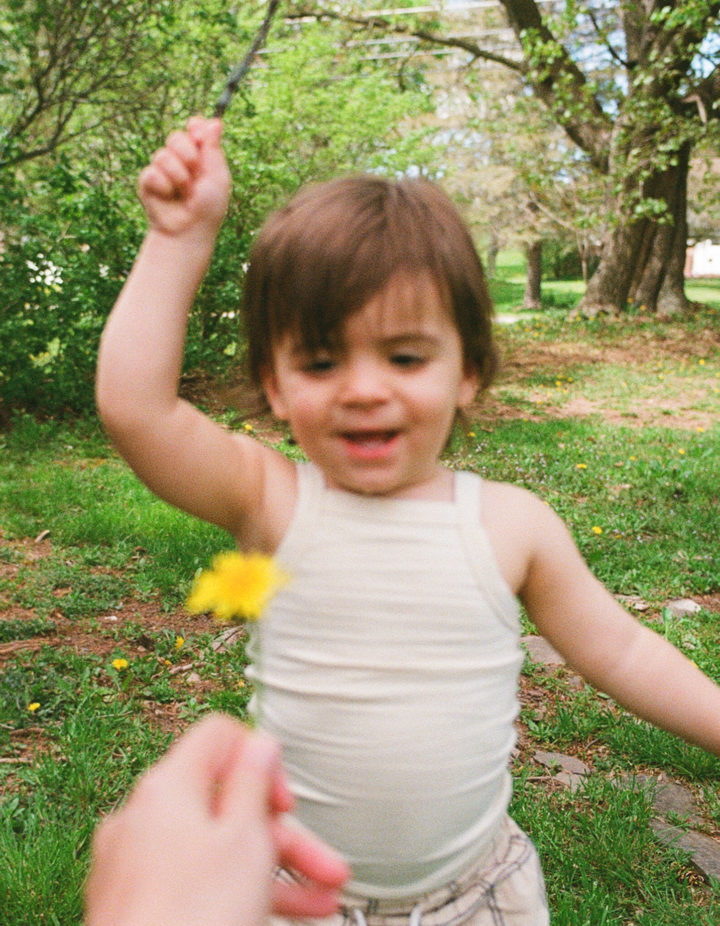I didn’t want to write this because I didn’t want it to be a “thing.”But here’s the “thing.” It’s 10:00 pm, my son is asleep, and I finally have some time to myself. Here’s what I do with it. I scroll through the “What To Expect” app and click on the “forum” section. It’s a dark, dangerous, wild and wildly-funny-at-times place where mothers of all kinds, ages, and experiences keep their secrets, or rather, they tell them. It’s where we turn to strangers to ask the questions that keep our hearts churning and our minds running at night.
Many of them sound a little bit like this:
My baby doesn’t do [fill in the blank] and their cousin of the same age is.
My baby is [insert age] and everyone says they should be doing [fill in the blank] and they aren’t.
My baby isn’t doing [fill in the blank] and my doctor didn’t give me the time of day when I asked them about [insert worry].
Is anyone else’s kid doing [fill in the blank] or not doing [fill in the blank].
To no surprise at all, alot of these conversations, threads and late-night writings are related to something that I’ve researched and it actually has a name — it’s called “milestone anxiety.”
What is milestone anxiety? It’s the concern we feel about our babies doing certain things “on time.” It’s those scary checkboxes in the parenting books. The ones that if you don’t check off right in time, might lead to some sort of diagnosis. The constant comparison with other children and the worry that your baby isn’t doing “enough.”
It’s the first step that hasn’t come yet. It’s the “they’re-not-rolling-over” yets. It’s the clapping that you do everyday in hopes that they’ll repeat it. ” It’s seeing a kid at the park running while yours is still holding onto things to stand. It’s things that might seem small. Mundane. But to us, to moms, they feel really big.
Developmental milestones — rolling over, babbling, transitioning to solid food, mastering a pincer grasp — are in every baby book and they cause a huge amount of anxiety in parents. Because, as parents we have an idea of what parenthood will look like, and what our children might accomplish. We prioritize wins over challenges. And when things start to get bumpy or our baby takes a left turn when they should have taken a right, we’re not met with much guidance.
Here’s a thought I’m asking myself, and you might want to ask yourself “are baby milestones an effective way to measure growth and the way we move about life?” If we look to science for the answer, we’ll find that no, babies arrive at development milestones at different times and in different orders. That’s why the word “milestone,” which connotes linear progress, is so unhelpful. People love the idea of a path. But typical developmental markers are intended to be used as a a direction to move towards, not a linear path.
My milestone anxiety: words. The perfectly strung together words, or even the single word that I’m waiting for…”mama.”
My son is 19 months and I’m totally consumed with him finding his voice. It’s my secret worry that might seem totally ridiculous to some. I’ve never had this worry be justified. By doctors, his neurologist, not even by his own father. But worries are never “justifiable,” are they? And do they have to be? My biggest worry since becoming a parent is to never hear perfectly strung-together words. That my son would be: “non-verbal.”
In the search bar of the app, I write one word: “speech.” I wait for the results. I wait for someone who’s going through the same exact experience as I am. But after doing this for a few months, I’ll never find them. We are the only “us.” He is the only “him.”
But I think I have the answer to what I’m searching (what we’re searching) for. If we let go of the children we expect to have, the parents we planned to be, and the experiences other families are having (*or appear to be having) we can allow ourselves to become more present and joyful in what we already have. In the reality of our lives. We have to begin to love what is and not what could be.
If we let go of the children we expect to have….we can allow ourselves to become more present and joyful in what we already have.
It’s bedtime. We lay on the floor. The lights glow on the ceiling. I sing a song. I brush the hair out of his eyes. I whisper, “Tomorrow, what do you think? Will you say a couple of words for mama?” It stings in my gut. I did it again. I let it get in the way. I let the worry take over the joy of the moment.
But then again, I’m a mom. And I’m trying my best.
Here’s some tips from CanDo Kiddo, a platform that focuses on strength-based developmental progress — I’ve found a lot of solace in these words and hope you do too:
Growth
Development is never complete. Growing and learning are lifelong pursuits — for our children, ourselves and our families
Intuition
Information isn’t the sole antidote to anxiety. Peace relies on cultivating our innate wisdom, deep knowing and gut instincts
Intention
Circumstances may be outside our control but we alway have the power to choose how we think, feel and act in response
Diversity
Differences in bodies, brains, values, personal and cultural histories require us to let go of a narrow definition of “normal”
Emmy Marucci is a mother, published poet, writer and content-producer for all things in the baby space (Coterie, Oso & Me, Gooselings). Her book “tell me another story” explores grief, family and the importance of storytelling. She’s currently writing a children’s book with her husband, who is also a writer. For more stories follow her @emmymarucci.


